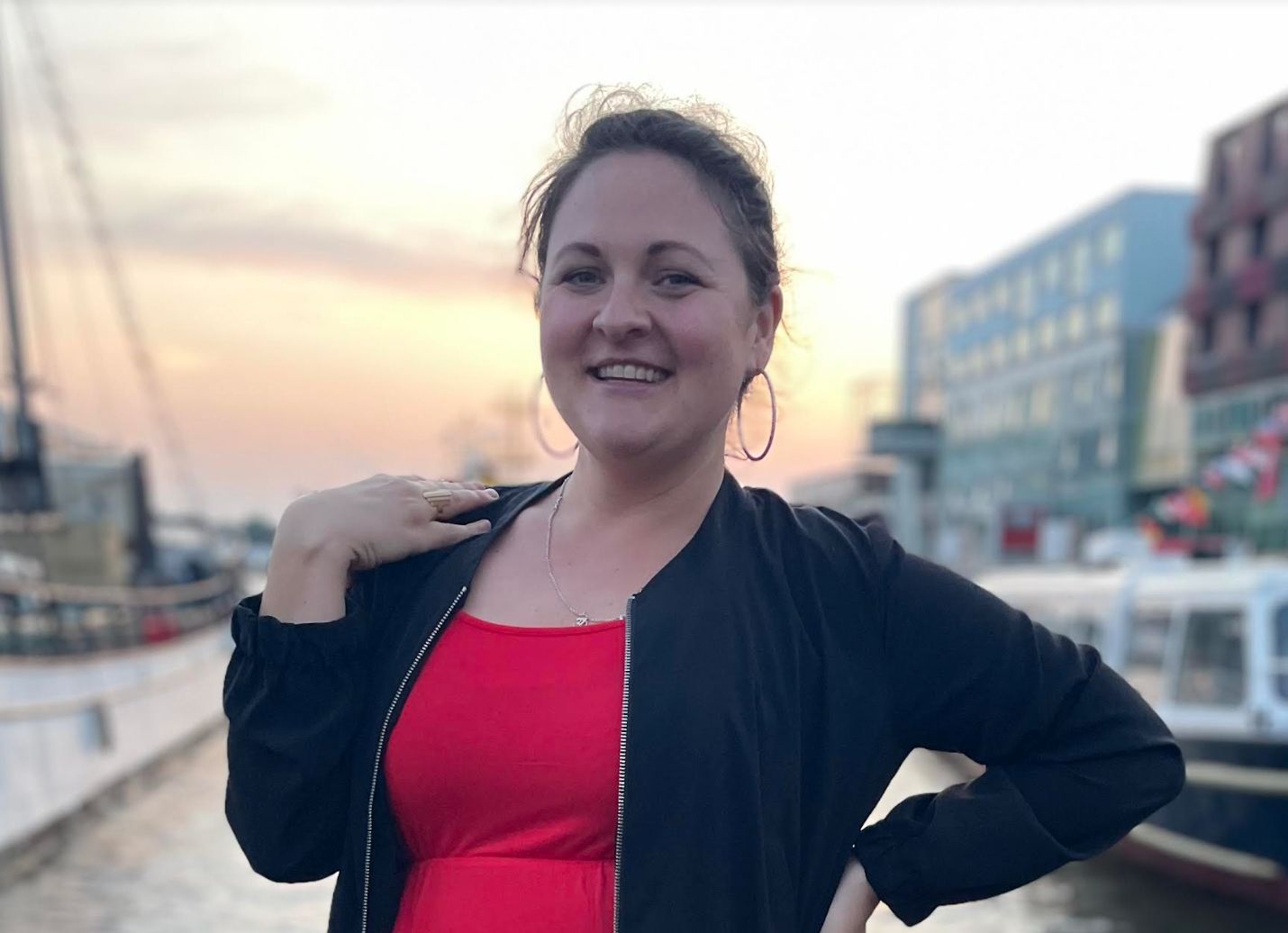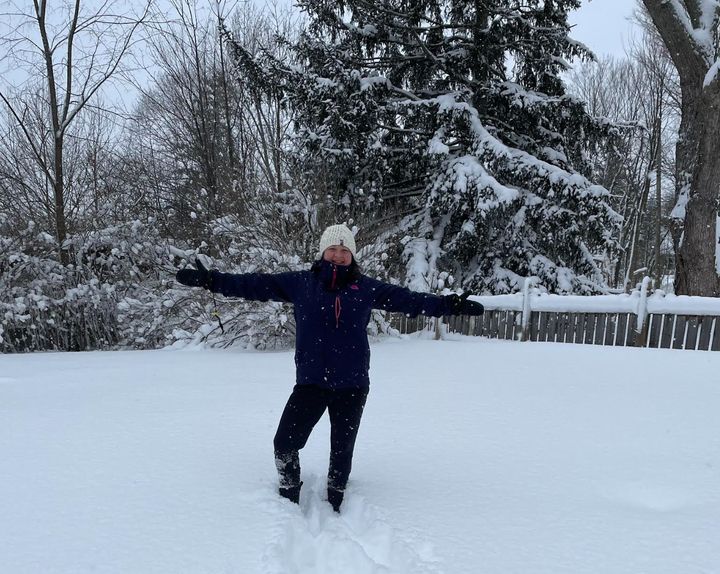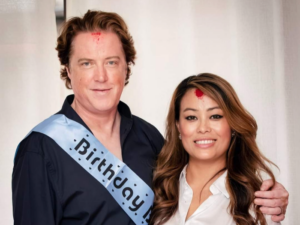I Lived Abroad For 11 Years. This Is The Thing That Shocked Me Most When I Moved Back To The U.S.
9 min read
Health insurance was the thing that haunted me the most when I decided to move back to the United States from Germany. There, health insurance is both required by law and affordable. Now, as the open enrollment period approaches, I remember my struggle with this nebula in the U.S. one year ago.
When I began to dig into the “How will I afford health care in America?” question, anxiety coursed through my body. Questions inundated me: What exactly is the difference between an HMO and a PPO? What is a deductible? Why can you only change your health care plan during one specific time of year? Where exactly do you go to enroll? How many providers and plans are there? Hundreds? What is this business of platinum, gold, silver, bronze and catastrophic tiers?
One might think I would understand this as an American citizen, but I had spent my entire adult life after college in Europe, where the process is very straightforward. I caught myself repeatedly gawking at all the absurdities as I sifted through podcasts and articles and spoke to anyone willing to listen and offer advice.
I read stories about Americans plagued with medical debt that ruined their lives — about unpayable bills for medical care due to accidents or about astronomical hidden costs. One of my friends said she just didn’t pay her medical bills. Another said all she knew about insurance was that her job offered decent health care.
It seemed like no one really understood the American health care system.
Three weeks after arriving in the U.S. with my first load of luggage, I began to search for my own coverage. I did what my aunt told me to do: I put “health insurance” into my browser and clicked the first, most legit-looking New York state website. Within minutes, I was cold-called by insurance brokers. In my naïveté, I thought they were calling about New York state insurance.
I got the details on several plans and signed up for one over the phone. It was cheaper than Obamacare and would save me in an emergency. It sounded good, and, by American standards, affordable at $239 a month. The broker dropped words like HMO and PPO, which I didn’t understand and was too ashamed to ask about. When I got the fine print, however:
- My deductible was $8,750.
- I was allowed to go to a doctor once a year with a $25 co-pay.
- Co-pays were significantly higher than what was discussed on the phone.
- Hardly anything was covered.
- I was required to download and use their browser for 500 hours a year to maintain eligibility for their program (yes, you read that correctly).
My first thought was: What am I actually paying for? So, if I have a terrible accident, I won’t go bankrupt, but I will still owe at least $8,750?! And don’t get me started on that thing about the search engine.
I called them back immediately and asked to have that “health insurance plan” canceled, which luckily they agreed to do. Confused and nervous, I took a break from my search for a week. I still had full German voluntary coverage until the end of September (201 euros per month out of pocket, as I was no longer employed), so U.S. health coverage wasn’t absolutely necessary. Yet.
The next broker that called promised low co-pays and full coverage in a plan that I’d never heard of but that supposedly had the same benefits of well-known (and much more expensive) insurance companies I’d researched. I explained that I’d been duped before, and wanted to make sure it didn’t happen again. He gave me his name, his personal extension and claimed it was a $0 deductible PPO. (I had since learned that PPO meant being able to choose your own doctors). All this for $263.90 a month, plus a one-time $125 enrollment fee. It seemed too good to be true (spoiler: it was).
“Fine. Sign me up,” I said, though a rock of distrust sat in my gut.
I returned to Germany for seven weeks to empty out my apartment and say my goodbyes. My mother told me the insurance cards had arrived, but she hadn’t looked at them. It’s fine, I told myself. The insurance agent promised me it would be fine.
Upon my reentry into the U.S., however, something was very much not fine with those insurance cards. Namely, the words “THIS IS NOT INSURANCE” were printed on them. Apparently, this offer was a “health sharing” plan run by a religious group in Texas and hardly covered anything.
When I went to their website to register, which was not possible without a log-in code that I was never given, I was confronted by a homepage of a beach landscape (yes, a beach) with a small log-in area in the top right corner. Not the most official-looking site for an insurance company ― ahem, a NOT-insurance company.
“You have got to be kidding me,” I said out loud and immediately called the customer service hotline. I was on hold for 20 minutes until the call hung up. I tried again. Same outcome. Sweating nervously, I googled that “health sharing” community and found they had an “F” rating from the Better Business Bureau and many other people had been scammed by them. At least there’s that: The glimmer of solidarity in shared victimhood reduced my feelings of shame as I navigated this serpentine path.
After a lengthy conversation with a lovely customer service representative at my bank, a claims dispute was filed. Luckily, I had written down every single word the insurance broker had told me and was able to provide the bank with all the necessary information.
A few weeks passed and I got my money back.

Misled twice, with my tail between my legs, I went on the New York State of Health website (at last: the official state website!) and entered my information. Within one day I qualified for Medicaid, as I was currently unemployed following my international move.
I had the choice between regular Medicaid and a program called Medisource through Independent Health. I chose the latter. One day later I was verified. My coverage started November 1, 2022, and because I would be earning less than $18,750 annually at that time, this plan had no deductible, co-pays or monthly premium and there was full coverage.
I consider myself ridiculously lucky to be poor enough to qualify for Medicaid, because other plans I’ve discussed with friends and family are not this generous. Not even close. But what about if or when I no longer qualify? And what about everybody else?
The differences in the German health care system really set me up for failure in the U.S. I (very naively) expected a straightforward experience and the same fundamental coverage as in Germany. For example, co-pays in Germany are only applicable in specific situations (physical therapy at 26 euros for six sessions, optional cataract testing at 25 euros, optional ovarian ultrasound at 40 euros). Deductibles don’t exist. Neither does the fear of bankruptcy as a result of medical bills or the possibility of getting scammed when signing up for health care.
Germany is a social welfare state. Some Americans hear the word “social” and immediately revert to the fear of McCarthyism and the Red Scare. What it really means, though, is that everyone plays a role in this system. Whether you’re a student, apprentice, employee, unemployed person, retiree or someone with a disability, you are guaranteed health care. Still, whenever I’ve tried to explain to my family that the German system was fair and sustainable, they would reply: “I just don’t want that here. OK?”
The more information I collect, the more insanity I see leaking out of the American system, which is actually a cold, hard business. I recently read a disturbing statistic that one-third of all GoFundMe pages are to help people pay for medical care because they cannot afford to pay their bills. How many people can, really?
I also can’t stop thinking about a friend of mine who was afraid to get his wrist checked out after a bicycle accident because of the cost of fixing a broken bone. Instead, he hoped it would just heal on its own. And he has insurance!
He then told me about the time a woman screamed, “Don’t call an ambulance — I can’t afford it!” as her foot was crushed between the platform and the closing doors of a subway car in his hometown.
Another friend’s husband had a seizure at work in 2011 and was taken to the emergency room. They are still paying off this bill. These are just a few of many examples I’ve heard.
Soul-crushing medical debt is not a normal part of life in most other countries. Fear of the debt you may accrue due to an accident is not normal. Why is good health care a privilege when it should be a human right?
My fellow Americans, why do we accept this?
I will never understand it. Maybe it’s something I personally have to accept as a former expat. I see American policies through different eyes, and I think every other American would, too, if they had the opportunity to step out and truly experience another country’s health care system.
Ours is a country many Europeans look at through a critical lens — “a place to visit, but not to live,” as my German doctor put it. A land of hopes and dreams and amber waves of grain and purple mountains majesty and health sharing scams and bottomless pits of medical debt.
America, the brutifal.
Amy Lynn Hardy, originally from Buffalo, New York, spent eleven years of her life in Bremerhaven, Germany, as an English and French teacher and Zumba Fitness instructor. Her experiences and misadventures as a former expat have majorly shaped her life and writing. Read more of her writing at amylynnhardyauthorsite.com.
Do you have a compelling personal story you’d like to see published on HuffPost? Find out what we’re looking for here and send us a pitch.
Discover more from Slow Travel News
Subscribe to get the latest posts sent to your email.



